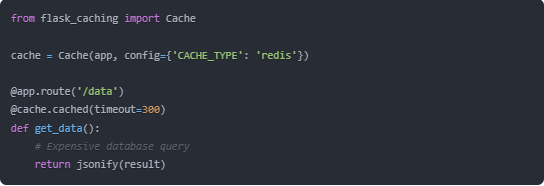Essentials of Building Websites with Python
In today’s digital landscape, web development skills are more crucial than ever. As someone who has taught at a leading Python Course in Coimbatore, I’ve witnessed firsthand how Python has revolutionized web development. This comprehensive guide will walk you through the essential concepts, frameworks, and best practices for building robust websites using Python.
Understanding the Fundamentals
Before diving into web development with Python, it’s crucial to have a solid foundation in the language basics. Many aspiring developers begin their journey at a reputable Python Training Institute to master these fundamentals. Let’s explore the key components that make Python an excellent choice for web development.
Why Python for Web Development?
- Readability and Clean Syntax Python’s clear and readable syntax makes it an ideal language for web development. Its emphasis on code readability reduces the maintenance burden and makes collaboration easier among development teams.
- Rich Ecosystem Python boasts an extensive collection of libraries and frameworks specifically designed for web development. From Django to Flask, these tools provide developers with powerful capabilities right out of the box.
- Versatility Whether you’re building a simple blog or a complex e-commerce platform, Python’s versatility allows it to handle various web development needs efficiently.
Essential Web Development Frameworks
Django: The Complete Package
Django stands as Python’s most popular web framework, offering a “batteries-included” approach to web development. Having taught at a prestigious Python Course in Coimbatore, I’ve seen how Django’s features accelerate development:
- Built-in Admin Interface
- Automatic admin interface generation
- Customizable dashboard for content management
- User authentication and authorization systems
- ORM (Object-Relational Mapping)
- Simplified database operations
- Support for multiple database backends
- Automated database schema management
- Security Features
- Cross-site scripting (XSS) protection
- Cross-site request forgery (CSRF) protection
- SQL injection prevention
Flask: The Lightweight Alternative
Flask provides a more minimalist approach to web development, offering greater flexibility and control. Many developers at our Python Training Institute prefer Flask for smaller projects or microservices:
- Routing System
- URL routing with decorators
- Support for variable rules
- Custom error pages
- Template Engine
- Jinja2 templating language
- Template inheritance
- Macro support
- Extensions
- Flask-SQLAlchemy for database operations
- Flask-Login for user authentication
- Flask-RESTful for API development
Database Integration
SQL Databases
- SQLAlchemy
- Object-relational mapper (ORM)
- Support for multiple database engines
- Transaction management
- PostgreSQL Integration

NoSQL Databases
- MongoDB with PyMongo

Frontend Integration
Template Engines
- Jinja2

- Working with Static Files

API Development
RESTful APIs with Flask

Authentication and Security
- JWT Authentication

Deployment and Hosting
Production Server Setup
- Gunicorn Configuration

- Nginx as Reverse Proxy

- Docker Integration

Testing and Quality Assurance
- Unit Testing

- Integration Testing

Performance Optimization
Caching Strategies
- Redis Integration

- Database Query Optimization

Security Best Practices
- Input Validation

- Password Hashing

Monitoring and Logging
Application Logging

Performance Monitoring
- New Relic Integration

Asynchronous Programming with Python
One of the most powerful features of modern Python web development is asynchronous programming. Using async/await syntax, developers can create highly efficient web applications that can handle multiple concurrent connections.

WebSocket Integration
Real-time communication is increasingly important in modern web applications. Python makes it easy to implement WebSocket connections:

Microservices Architecture
Service Discovery
Implementing service discovery in a Python microservices architecture:

Message Queues
Implementing message queues for asynchronous communication between services:

Containerization and Orchestration
Docker Compose Setup

Kubernetes Deployment

Advanced Database Patterns
Database Sharding
Implementing database sharding for horizontal scaling:

Database Migration Strategies

Advanced Security Implementation
OAuth2 Integration

Rate Limiting

Deployment Automation
Continuous Integration/Continuous Deployment (CI/CD)

These advanced topics further enhance the capabilities of Python web development, allowing developers to create more sophisticated and scalable applications. As the web development landscape continues to evolve, staying updated with these advanced concepts becomes increasingly important for building modern web applications.
Conclusion
Building websites with Python offers a powerful and flexible approach to web development. Whether you’re a beginner or an experienced developer, the Python ecosystem provides all the tools necessary to create robust and scalable web applications. If you’re interested in learning more, consider enrolling in our Python Training program at Xplore IT Corp. Our Python Course in Coimbatore offers comprehensive training that covers all these essential topics and more.
Remember that web development is an ever-evolving field, and staying updated with the latest trends and best practices is crucial for success. Continue learning, experimenting, and building to master the art of web development with Python.

